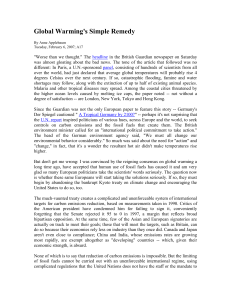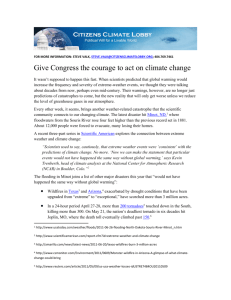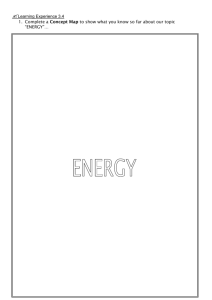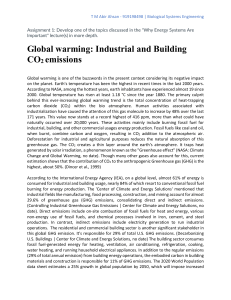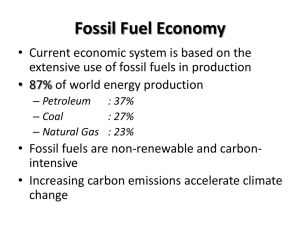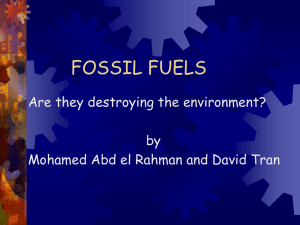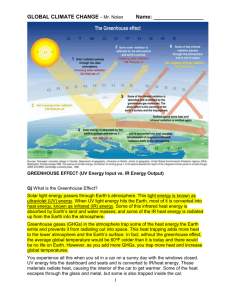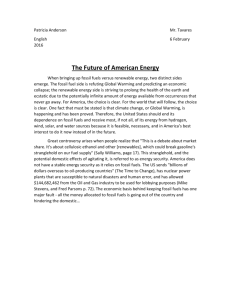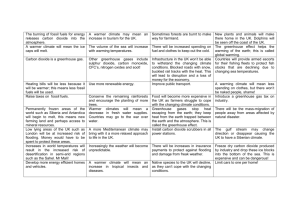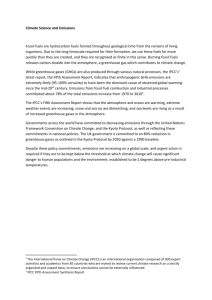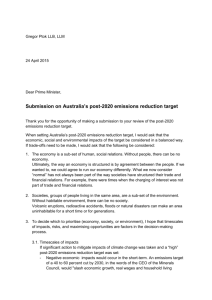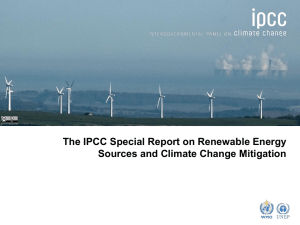Introduction to Climate Justice - Climate Justice in BC: Lessons for
advertisement
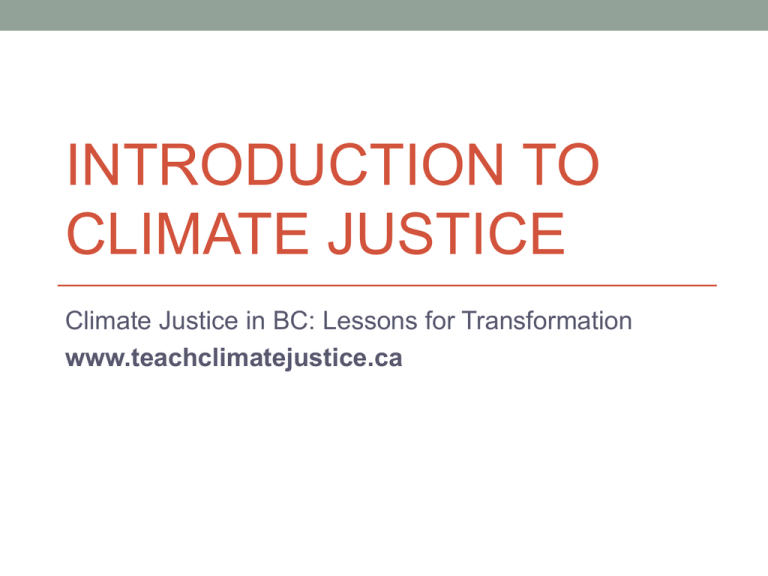
INTRODUCTION TO CLIMATE JUSTICE Climate Justice in BC: Lessons for Transformation www.teachclimatejustice.ca What is climate change? Climate Change 101 – Questions 1. What is the difference between global warming and climate change? 2. What are fossil fuels and how do they cause climate change? 3. Is climate change something that will happen far in the future or are we seeing it now? Explain your reasoning. 4. Name some examples of changes in climate or extreme weather. What are some recent extreme weather events that have happened around the world? Key terms Global warming: The heating up of the Earth caused primarily by the burning of fossil fuels (oil, coal and natural gas), which releases heat-trapping carbon dioxide into the atmosphere. Climate change: The altering of climate patterns (e.g. more precipitation, more intense storms, floods or droughts) on Earth caused by the burning of fossil fuels. Key terms Carbon dioxide (CO2): A heat-trapping molecule, and the principal greenhouse gas of concern to climate scientists. A growing concentration of CO2 from burning fossil fuels is warming the Earth. 2°C The amount of global warming above pre-industrial levels (200 years ago), which could lead to catastrophic outcomes for human populations (and countless other animal and plant species). The Earth has already warmed by 0.8°C above pre-industrial levels. Climate Justice Quotes – Questions Write in your journal or a piece of paper: What thoughts, feelings, questions or ideas stood out to you from the quotes? Discuss: How might climate change affect people in different circumstances differently? Introduction to Climate Justice Intro to Climate Justice – Questions 1. Which countries have benefitted the most from using fossil fuels? Are these the same countries that will be most impacted by climate change? 2. What are some examples of places and populations that are the most vulnerable to climate change? 3. Does BC or Canada have a moral obligation to reduce our emissions, or should we only be concerned with our own economic interests? Why? Climate change and BC The good news: BC has legislated greenhouse gas reduction targets (33% below 2007 levels by 2020, and 80% by 2050), and brought in a modest tax on carbon. The bad news: BC has no concrete plan to fully achieve its legislated greenhouse gas reduction targets. Instead, the province’s economic focus has shifted to ramping up the extraction and export of fossil fuels – in particular, natural gas in the form of liquefied natural gas (LNG) as well as coal. Climate change and BC – Questions 1. Does it make sense for BC to try to reduce its GHG emissions while at the same time expanding exports of fossil fuels? Why or why not? 2. Should BC aspire to be a leader in reducing its emissions or wait for others to act first? Why? 3. What are some things we could do in our city or province that would reduce our GHG emissions? Greenhouse Gas Emissions by Income Discussion questions for small groups 1. Why might people with higher incomes be responsible for more emissions? 2. What are other reasons why some people may have higher emissions than others? What are some barriers people face in reducing their emissions? 3. If British Columbians need to reduce their GHG emissions, should some people reduce theirs more than others? Why or why not? Climate justice: Building a better BC Brainstorm as a class: What are some things we can do as a province to pursue climate justice in BC? Question: BC has one of the highest poverty rates in Canada. How might the pursuit of climate action help or hinder action to address this important issue for our province?
